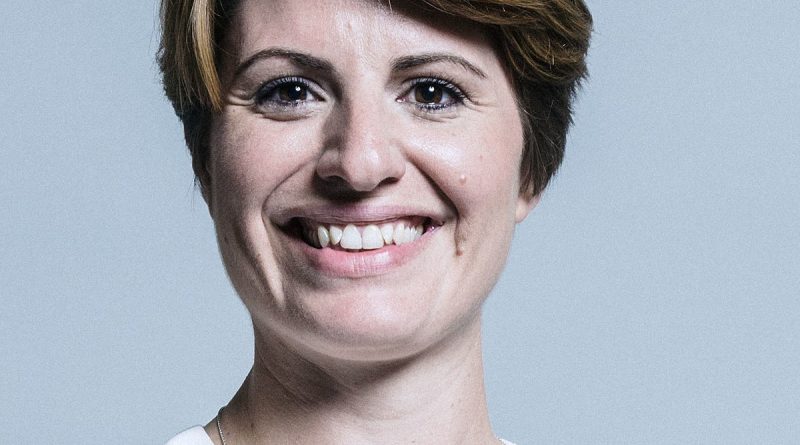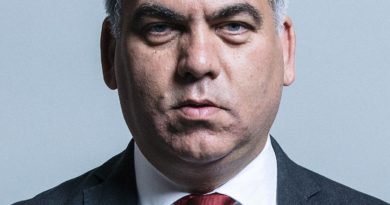Emma Hardy – 2022 Speech on the NHS Workforce
The speech made by Emma Hardy, the Labour MP for Kingston upon Hull West and Hessle, in the House of Commons on 6 December 2022.
In Hull West and Hessle, 1,730 people are waiting more than 28 days to see a GP and 6,225 are waiting more than 14 days. The ratio of GPs to patients in Hull is one of the lowest in the country, which is fuelling some of the many problems that we are seeing in accident and emergency. That is combined with the concerns that I raised with the Secretary of State about the delay to discharge; the 30% vacancies in our adult healthcare sector; and the delay in money that the Government promised to adult healthcare services, which means that delays are only increasing. I am incredibly concerned about what will happen over the winter.
I will focus my remarks on my concerns about radiotherapy, about which I have written to the Minister of State, Department of Health and Social Care, the hon. Member for Faversham and Mid Kent (Helen Whately). With respect, I wrote to her on 3 September and received a reply on 28 November, which is disappointing on such a serious matter. I raise that issue today because, in August, I received an update from the Humber and North Yorkshire cancer alliance about the state of radiotherapy. For those who are unfamiliar, radiotherapy is used to treat and kill cancer cells and to shrink tumours. It is often used in the early stages of cancer.
In the briefing note that the Humber and North Yorkshire cancer alliance sent me, which I can only assume it sent to other Members of Parliament, it says:
“It is expected that the radiotherapy position at HUTH will worsen through the year. The reduced capacity obviously could pose a risk to patients (from a health and wellbeing perspective, as well as from a patient experience perspective).”
The reason it wrote to me to tell me of its concerns about radiotherapy is the shortages we have in the area. It says that the percentage of Hull University Teaching Hospitals NHS Trust patients who began radiotherapy as their first definitive treatment for cancer and who did so within 62 days of an urgent referral for suspected cancer—within 62 days of an urgent referral—was 22% in July, 50% in June and 29% in May, compared with over 50% previously. The percentage of HUTH patients who received radiotherapy following their first definitive treatment within the 31-day target was 44%. So the majority of people are not being seen for their cancer treatment within the 31-day target, and only 22% of people sent for urgent referrals for suspected cancer are being seen.
The reason for this is given in the briefing note, which says:
“Many of HUTH’s therapeutic radiographers have left the profession to pursue a better work-life balance, while those who have remained in their roles have also sought improved work-life balance by seeking roles closer to where they live to reduce commute times.”
That is the reason people are leaving—to seek a better work-life balance. It is not because they do not care or they do not wish to continue to treat people, but because they simply cannot maintain it at this level. The note says that
“staffing shortages is an issue experienced across the country.”
It also says—this is a key point because the Government’s defence is often that the pandemic has caused all these problems:
“Therapeutic radiography has been considered a vulnerable profession for years.”
Pre-pandemic we were having problems with radiographers, but no action was taken, and this is still considered a problem right now.
I wrote to the Minister and the Secretary of State about this, quoting from the briefing note. I sent the letter on 3 September, and I said:
“I am sure you will agree that the evidently increased waiting time for potential life-saving or life-prolonging treatment is extremely concerning.”
I understand that Hull University Teaching Hospitals NHS Trust is doing everything it possibly can. It has taken on two apprentices to be trained up as radiographers, but we all understand that we cannot instantly produce the radiographers we need. As I say, I sent the letter on 3 September, and it was also signed by my right hon. Friend the Member for Kingston upon Hull North (Dame Diana Johnson) and my hon. Friend the Member for Kingston upon Hull East (Karl Turner). It took the Minister until 28 November to reply, even though I started the letter by saying:
“I am writing having received a very worrying update from the Humber and North Yorkshire Cancer Alliance regarding a reduction in services”
in my constituency.
In her reply, the Minister admitted:
“HUTH advises that, to protect existing staff and maintain the service, it was necessary to reduce capacity to sustainable levels, which has in turn led to the inability to reach specific targets and a growing waiting list.”
So this is a problem that the Government are well aware of, despite their delay in responding to it. It is a problem that has been around for years, and it is a problem that is literally a matter of life and death. If people do not get the cancer treatment they need when they need it, we know the consequences. The failure to deal with and address the NHS workforce is not just a mild inconvenience; it is an incredibly serious matter that has been a long time coming and a damning indictment of 12 years of Conservative mismanagement of our NHS.


